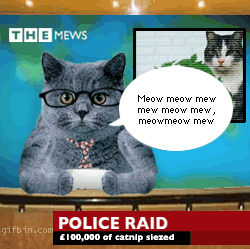 |
| Rat found 16 land mines that day. |
Niko Mushi hated rats, as did most people in his village near Tanzania's Mt. Kilimanjaro -- until he learned the critters had a nose for land mines. Mushi, 32, has been working with giant African pouched rats for almost seven years. He now enjoys their company -- "They're just like my friend," he says -- but he concedes he was skeptical when the man who conceived the idea for HeroRats first told him they could sniff out live ordnance. "I thought maybe he was making some jokes," Mushi said. "I was amazed that rats could do such a thing." Before he started working with rats, Mushi had a comfortable job teaching the Kiswahili language at a Lutheran seminary. He was terrified when he first took one of his long-tailed protégés into a Mozambican minefield. He'd heard stories of accidents involving the mines, mostly leftovers from Mozambique's civil war, which ended in 1992. He was not emboldened by the skeletons of soldiers and others who'd taken unfortunate steps before him.
But his rat found 16 land mines that day. "We are not a good friend to these creatures," Mushi said of his countrymen, "but after people see this work that we are doing, they change this position." Bart Weetjens is the brain and Buddhist monk behind APOPO (a Dutch acronym meaning Anti-Personnel Land Mines Detection Product Development), which trains HeroRats. He said Mushi's initial repulsion is common. Prejudice against rats is "deep in our psyche" and has roots in the Middle Ages when the rodents were blamed for the plague, Weetjens said. He quickly cited Black Death's rightful culprit: fleas. The Belgian-born Weetjens, 43, is an apt candidate to change rats' unsavory image. A self-professed rodent lover, he was given his first hamster, Goldy, for his ninth birthday. "Fascinated as I was by it, I wanted to have a female hamster. Soon, I had a nest of hamsters," he said. "Mother didn't like that too much, so I took them to the pet shop and they gave me money for those hamsters."
He soon found out pet shops paid even more for rats, and more still for gerbils and squirrels. It wasn't long before Weetjens had a "kind of breeding arrangement in my room" and was selling various rodents for walking-around money. At 14, he gave up his enterprise when he was sent to boarding school, but he maintained his love for rodents. Several of Weetjens' family members had worked in Africa, and Weetjens harbored a commitment to the continent. In the spring of 1995, he was analyzing the world's land mine epidemic -- a cause made vogue at the time by Britain's Princess Diana -- when he came across research that spoke to his childhood proclivity. Scientists were studying the use of gerbils in land mine detection, but they were using a system involving brain electrodes that Weetjens found unsustainable. He wanted a locally based solution that might empower communities. "Yes, rats can do that," he thought. "I knew I was right, even if it was very hard to defend."



 Posted in:
Posted in: 
















































0 comments:
Post a Comment